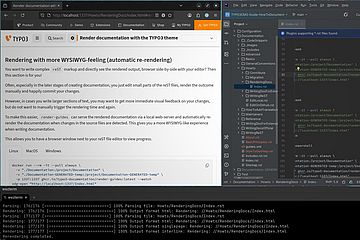
Short Report From the Best Practice — after Halloween — Remote Code Sprint
Categories:
Event Report,
Community,
Best Practice
The first Monday after Halloween 2025 is also the first Monday in November. As always, that means Remote Code Sprint Day with the Best Practices Team. We got through Halloween without any injuries, and the new week could begin.
Read more












